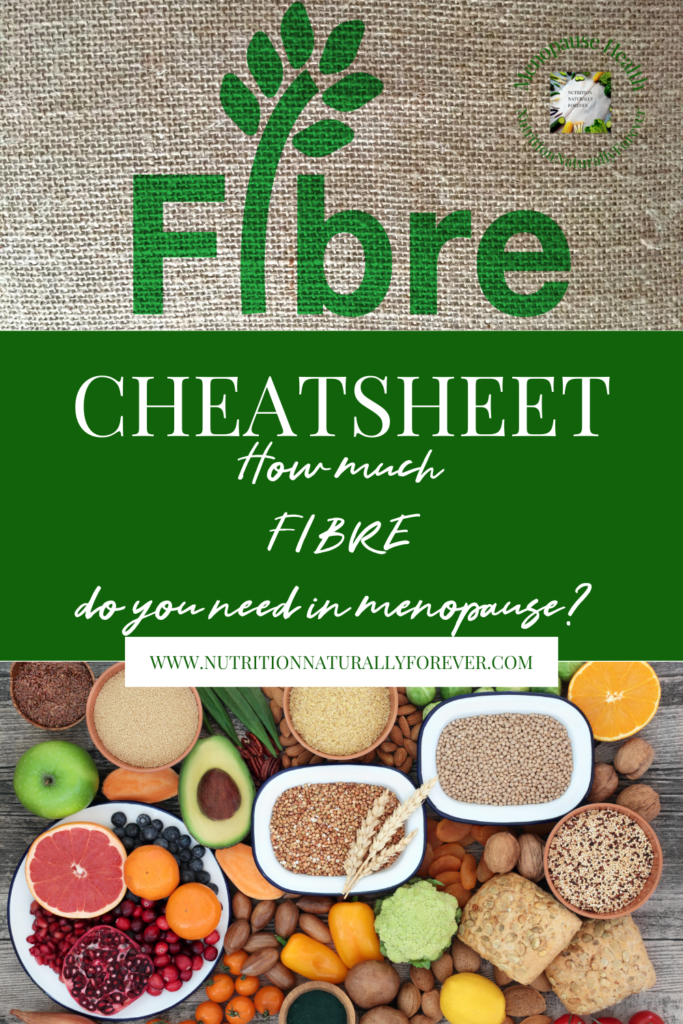
Fibre Cheatsheet
What is Fibre
Fibre is a plant-based carbohydrate found in foods such as whole grains, fruits and vegetables.
Fibre can not be broken down by the body and does not provide any nutritional value, however, it is extremely important for the body and plays an essential part in digestive health.
Health Benefits of Fibre
Most women do not eat enough fibre averaging just 15 grams per day.
The recommended daily amount is 25 grams which subject to your unique digestion can be increased to between 30-45 grams per day.
Fibre is essential for everyone but it is especially important during menopause as it supports the body to excrete excess hormones as well as;
- Keeping you full. Fibre is bulky and takes up space in your stomach
- Not only does it fill you up, but it also keeps you full for longer as the movement through the digestive system is slow.
- Fibre stimulates the digestive system and helps to relieve constipation
- It also helps prevent diseases such as diabetes, heart disease and cancer due to its ability to ‘mop up’ excess sugar, and cholesterol along with keeping blood sugar levels stable.
- Gut health – soluble fibre provides prebiotics, this is food for the healthy bacteria in your gut.
- A healthy gut reduces inflammation.
- Prebiotics from soluble fibre help the body absorb minerals which can improve bone health.
Download Your Free Fibre Cheatsheet
Download your free fibre cheatsheet with over 30 foods and the grams of fibre per 100 grams to make counting your daily fibre intake simple.
Read more about nutrition for menopause in these blog posts;
If you would like to chat with me about your unique menopause transition, book a Wild Well-Being call and come away inspired and motivated to begin your journey to optimal health.
